Desperate times call for desperate measures, but sometimes these measures may prove to be pure gold and turn into great ideas. This is exactly what happened when this Michigan student who was buried in depth, built his own off-the-grid tiny home. Living in a campus is part of a student’s life, but can be really expensive as it may be even more than $800 a month. Christopher Cerk, who studies at Michigan University thought of a great way to save some money and even gather some extra cash by building a really cool tiny home which isn’t connected to the power grid. He spent $13,000 to build this house, but saved a lot more in the upcoming years, by cutting his expenses. The home is very cozy and perfect for a student, as it has everything one might need for comfortable living and studying. Visit dailymail to learn more about this amazing home and share the article with your student friends.
“Student fed up with $800-a-month rent on campus builds his own tiny house and uses solar power and compost toilet to live off the grid – and saves himself $6,000”
Cerk spent $13,000 of his own money buying materials for his own diminutive dwelling, which measures just 170 square feet, the Ann Arbor News reported.
https://youtu.be/hz8sfeRy55A
via dailymail

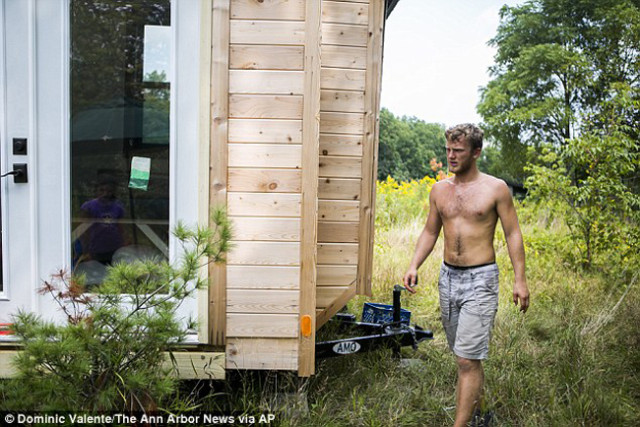
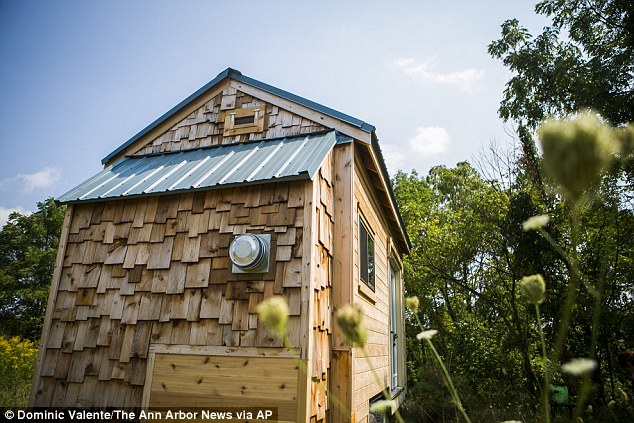
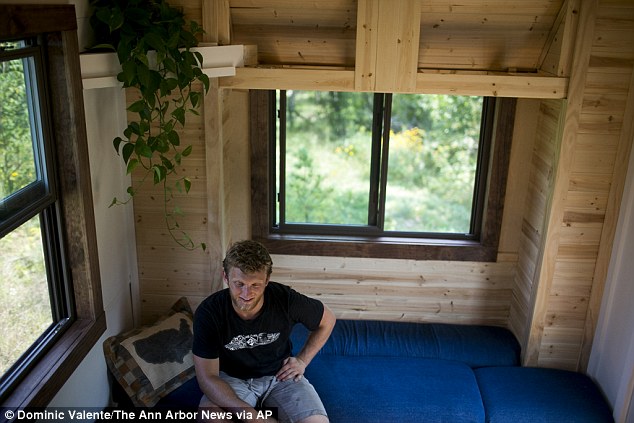
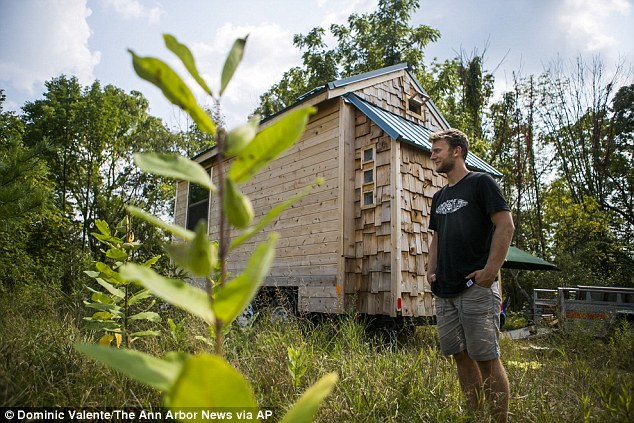







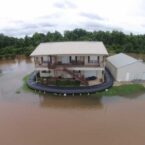
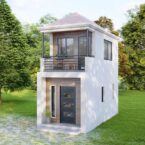





let me guess… He had to build it on a mobile home frame because no county would actually allow anyone to build anything that small and inexpensive on their territory…
And you wonder why the poor are getting poorer? With dwindling access to property it’s almost impossible to make it on your own unless they have big money…
Sadly, I’m surprised no official has yet knocked on his door to order him to vacate the premises… That will probably be the sad follow up on this story 😉
Good idea but he is not saving at all if he count the cost of:
1, water including transporting it on site;
2, pumping and maintaining the bio toilet;
3, heat – with today’s tech level of solar power, he won’t be able to heat up his unit enough to live through winter in Michigan
4, the cost of space, including the space for his truck.
5, up keep and the depreciating of his unit;
6, extra traveling cost on obtaining food and other sources
7, His labor, at today’s minimal construction cost, it is about at least 50 dollar per square to build (on cost, not even billing amount). In his case, for such small space, the cost can easily go triple. Let’s just say 50×170, that’s 8,500, in another word, to spend at least around 400 hours to build something like this, he can at least make around 5,000 without any skill. if he works on a construction site, he can double that easily.
All the building material he use will become waste very soon, not like normal building can easily last 50 years, that’s very against sustainability.
why can’t he just get a used camper and alter it? it will be much less than 13,000.
Hope he is not a business major.
Number 2 you can get rid of. Composting toilets do no require pumping and very little maint. They also do not require water or electricity in most cases.
You can read up on them here (www.offgridandgreen.com) if you want to learn more.
Not one mention in the print about the laws and regulations regarding these tiny “homes”. Every state’s laws are different and you still have to conform to them. Some states will classify these as “mobile homes” or “RV trailer homes” if mounted on wheels so you can park them in an appropriate site. State laws or local ordinances may even prohibit living in one in your own land. Some states may allow such a building on a property as an “auxiliary” living space but most would probably prohibit one as a primary (on a foundation) residence.
One word: winter